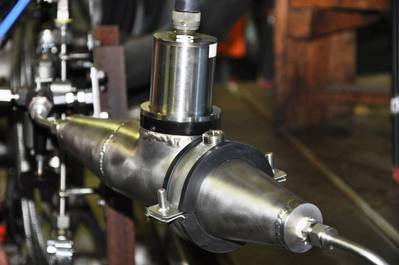New Diesel Fuel Quality Sensor from CMR
According to engine control and instrumentation specialists CMR Group, significant fuel savings can be achieved by diesel engine owners and marine vessel operators using the world’s first commercial high horsepower diesel fuel quality sensor.
The new Near Infrared Intelligent Sensor (NIRISTM) has been developed to detect fuel parameters through advanced hydro carbon profiling which measures the molecular structure of fuel. This allows real time optimization of injection, combustion and post-treatment for all types of fuel, including bio-fuels. When used in conjunction with an Engine Control Unit (ECU), NIRIS can help to significantly reduce fuel consumption and engine emission levels.
This technology is relevant to the marine sector due to the increased use of bio-fuels in the form of bio-diesels and the quantities of biodiesel being blended into conventional diesel fuels.
NIRIS is based on a smart combination of established infrared hardware and powerful data treatment software.
Featuring an advanced infrared spectrometer that performs continuous in-line analysis - measuring over 12 different parameters including the Cetane index, density, percentage of biodiesel and HCP - the sensor provides simple, easy-to-understand information that engineers can use for assessing the quality of the diesel fuel powering engine systems such as: standard, premium or bad.
The technology behind NIRIS has been brought together in a compact package that is no larger than a juice bottle. This enables easy mounting on an engine block and connection to other control technology and systems, delivering user benefits in terms of advanced monitoring capabilities, financial savings and better on-site emission control for improved environmental compliance.
NIRIS can reduce fuel consumption levels by up to 5% as part of a fuel management strategy to improve efficiencies, while further benefits include lower fuel analysis costs, correct engine performance and the overall alleviation of time consuming and costly damage to components due to inferior or low-grade fuels.
The unit can be quickly and easily retro-fitted anywhere between the low pressure and high pressure fuel pumps and interface with other instrumentation through CANopen or SAE J1939 protocols.
cmr-group.com














